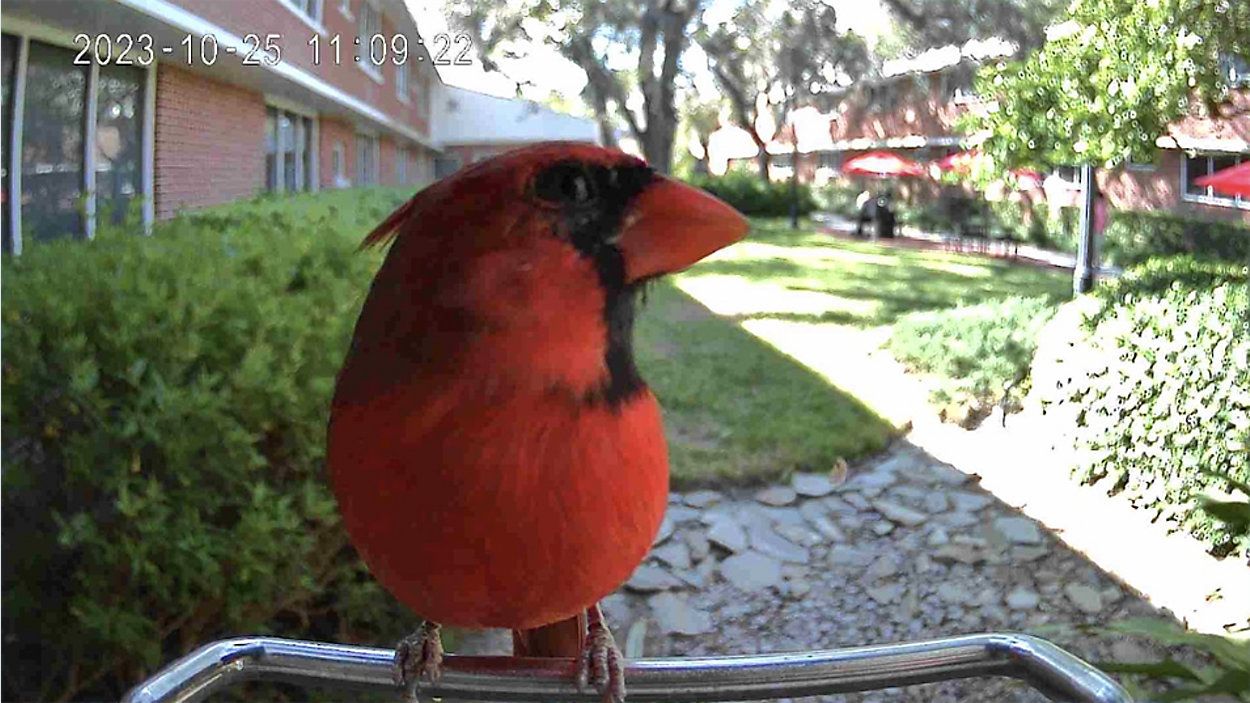TAMPA, Fla. — A University of Tampa professor and two students are studying which birds fly around the school's downtown Tampa campus.
The trio is using eight cameras to monitor the birds — tempting them to land in front of the lens with birdseed, which the student researchers frequently replenish.
What You Need To Know
A University of Tampa professor and two student researchers are studying the birds the fly around the school's downtown campus
Using grant money secured for the project, they have put up eight cameras around campus to watch for birds
They use birdseed to tempt the birds to fly in front of the cameras
They also collect fecal samples from the birds to test for diseases and parasites
A University of Tampa professor and two student researchers are studying the birds the fly around the school's downtown campus
Using grant money secured for the project, they have put up eight cameras around campus to watch for birds
They use birdseed to tempt the birds to fly in front of the cameras
They also collect fecal samples from the birds to test for diseases and parasites
UT biology professor Dr. Amber Brace is leading the research.
A disease ecologist, Brace said she believes learning more about the composition of UT’s bird population and how it changes over time would be valuable information.
“To try and determine if species coming in are potentially species that carry diseases that can be passed to humans,” Brace said.
She enlisted the help of university seniors Katherine Gutierrez and Alexandra Larson. Gutierrez is studying marine science and is an expert at identifying birds after having interned at the World Bird Sanctuary in Missouri.
“I’ve always loved (birds). From when I was little, they were always so fun to look at,” Gutierrez said. “I’m always impressed. There’s so much more to learn about them. They’re such intelligent creatures.”
Larson, who is also Gutierrez's roommate, is studying marine science and environmental science and doesn’t have the same expertise in identifying birds as Gutierrez does, but says her contributions are in the research aspect of the project. She said the research for the project includes collecting fecal samples from birds and studying them for parasites.

“That’s one of the main goals of the project, to look for fecal samples to collect,” Larson said. “The goal is to get as many samples as possible.”
Brace said people would be surprised to know how much a scientist can learn about parasites and possible diseases from studying a bird’s fecal samples. When asked how she would respond to someone who thought the endeavor was gross, Brace laughingly said: “You’re not wrong.”
Brace earned a Research Innovation and Scholarly Excellent (RISE) grant to conduct the research. That grant runs out in April, but Brace is hoping to extend the grant so she can research birds even longer.
Gutierrez and Larson will present some of their findings at a conference in Jacksonville in February.



